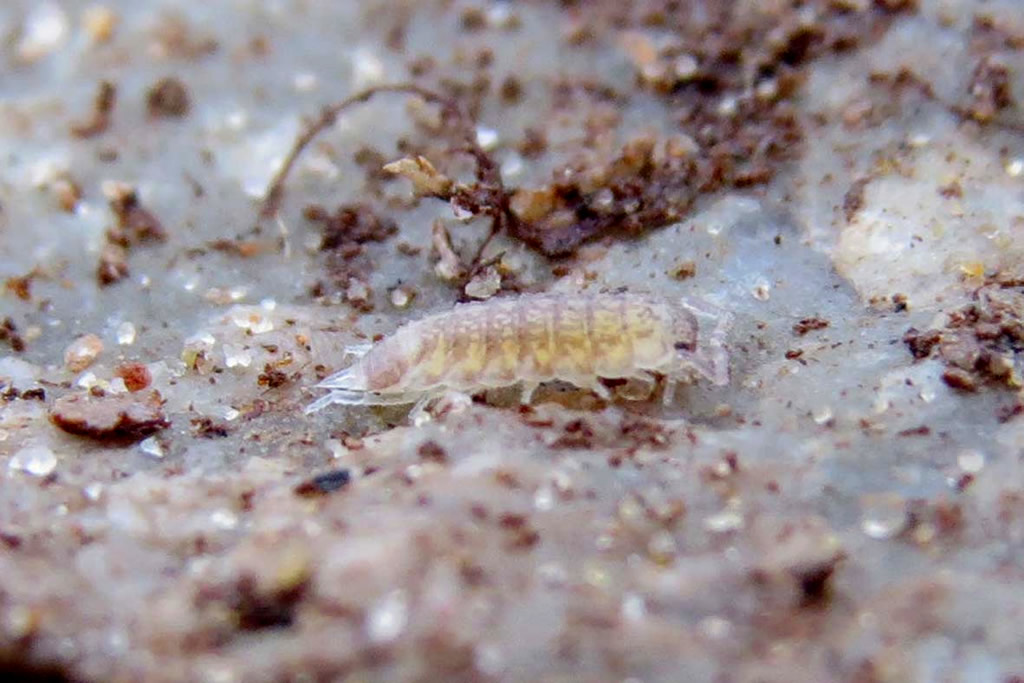Stenophiloscia glarearum Verhoeff, 1908
Synonyms
Status:
- GB IUCN status: Vulnerable
- GB rarity status: Nationally Rare
ID Difficulty
Identification
Stenophiloscia glarearum is a small slow moving species, reaching 6mm in length. Live specimens appear pinkish, somewhat reminiscent of a large pale Trichoniscus pusillus agg. or a pale immature Porcellio scaber. It has a stepped body outline and antennae with three flagella segments.
Distribution
Apparently very rare in Britain, Stenophiloscia glarearum is only known from a handful of southern coastal sites from Cornwall (BMIG Newsletter 39, pg 7) to Norfolk. However, it has proved extremely elusive, even at known sites, and is certainly very under-recorded. It has not been recorded from Ireland.
Habitat
Specimens have been collected from the storm drift line and above on unvegetated or sparsely vegetated shores composed of shingle or sand, either in pit-fall traps or clinging beneath strandline driftwood. At Cole Point, Essex, it was found with Trichoniscus pusillus agg, Philoscia muscorum, Porcellio scaber and Armadillidium album (Gregory, Whiteley & Wilde, 2001).
This summary is based on the detailed account in Gregory (2009), updated in Gregory (2024) (which includes an updated distribution map).
References
Gregory, S. (2009) Woodlice and Waterlice (Isopoda: Oniscidea & Asellota) in Britain and Ireland. Field Studies Council/Centre for Ecology & Hydrology.
Gregory, S., Whiteley, D, & Wilde, I (2001) Some observations of Stenophiloscia zosterae (Verhoeff, 1928) at Colne Point NNR, North Essex. Bulletin of the British Myriapod & Isopod Group 17: 79-80.
Links
World List of Marine, Freshwater and Terrestrial Isopod Crustaceans: https://www.marinespecies.org/isopoda/aphia.php?p=taxdetails&id=263275









